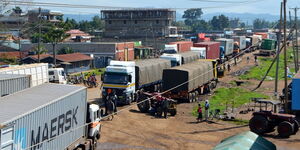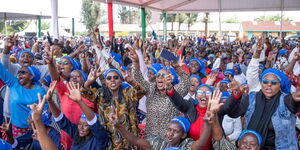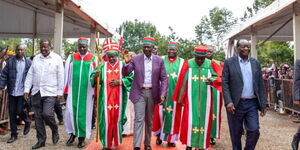At least 50,000 Kenyans are set to benefit from a Covid-19 cash transfer project supported by the United Kingdom government.
The programme hopes to cushion 10,000 vulnerable Kenyans in Mombasa County and 40,000 in Nairobi.
Rolled out in Mombasa on Tuesday, September 8, the programme has a kitty worth Ksh717 million. Each beneficiary will receive Ksh4,000 monthly on their mobile money accounts in a direct cash transfer.
But how exactly does the programme work? Kenyans.co.ke spoke to the British High Commission in Kenya on Thursday, September 9, revealing details.
The High Commission along with envoy Jane Marriott had been bombarded with requests from Kenyans interested in benefiting from the programme.
A representative for the High Commission, however, confirmed that the United Kingdom was not in any way involved in the day-to-day management of the program or selecting beneficiaries.
The United Kingdom primarily funds the programme, with county and national governments responsible for its execution.
Other than the county governments, the programme also brings on board the World Bank and Non-Governmental Organizations(NGOs) that play instrumental roles.
To benefit from the programme, one would have to first be identified by the relevant county departments or NGOs as a vulnerable individual.
They would then be registered and their contact information added to a database for them to receive the monthly transfers.
Importantly, they also have to be residents of either Nairobi or Mombasa.
"Some of the NGOs were already running support programs for vulnerable individuals so the UK is coming in with funding to adequately cushion them.
"What happens is that the Ambassador is invited to the launch events but we are not actually involved in the disbursement process," revealed a representative at the High Commission.
Among the NGOs involved is GiveDirectly, the US charity which piloted a Universal Basic Income (UBI) programme in Kenya in 2018.
Their UBI experiment rolled out in Kenya is considered the largest such experiment in the world.
It saw 16,000 Kenyans in rural areas supported with monthly cash transfers on mobile money, with the impact of the transfers on their lives then analysed.












